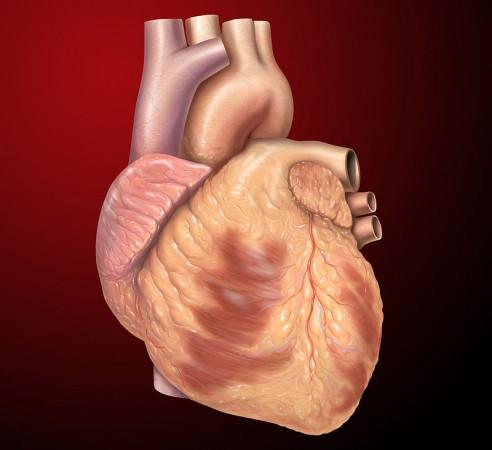
World Heart Day is celebrated globally on 29 September in order to spread awareness about cardiovascular diseases, which are the biggest cause of death worldwide. The event is also marked in order to promote preventive measures to reduce the risk of cardiovascular diseases.
According to WHO, cardiovascular diseases are the number one cause of death worldwide and it is projected to remain so indefinitely. In 2005, about 17.5 million people died from cardiovascular disease, which amount of 30% all global deaths.
To observe the World Health Day 2014, here are 15 most interesting facts about the human heart that we probably never knew:
- An average adult heart beats 1,00,000 times a day; 36,00,000 times a year; and 2.5 billion times during a lifetime.
- On average, the organ weighs about 310 g, but it pumps around 7570 litre blood through 60,000 miles of blood vessels each day.
- Since the heart has its own electrical impulse, it can continue beating even if it is separated from the body, with an adequate supply of oxygen.
- The heart pumps blood to almost all of the body's 75 trillion cells. Only the corneas don't receive blood supply.
- The heart begins beating at four weeks of conception and never stops until death.
- Early Egyptians believed that the heart and other major organs of the body had the will of their own and would independently move around inside the body.
- Greek philosopher Plato theorised that reasoning originated with the brain, but the passions originated in the heart. It is ever since his theory that the world has never stopped claiming that the source of love is the heart.
- The word 'heartfelt' originated from Aristotle's theory that the heart collected senses from the organs through the blood vessels. Those perceptions were the sources of thoughts and emotions.
- In 1929, German surgeon Werner Forssmann examined the anatomy of this own heart by putting a tube into his arm vein and pushing it 20 inches and into his heart.
- The first successful heart transplant was done on 3 December 1967, when Dr Christiaan Barnard of South Africa transplanted a human heart into the body of Louis Washansky. He survived only for 18 days.
- A woman's heart typically beats faster than a man's. Reason? Unknown.
- The blood takes only 16 seconds for it to reach the toes and travel all the way back to the heart.
- French physician Rene Laennec thought that it was inappropriate to place his ear in his female patients' chest because of their large breasts. This gave birth to the stethoscope, so it is said.
- A man's heart weighs about 283 g, while a woman's heart weighs approximately 225 g. So realistically speaking, men have 'bigger' hearts than woman!
- Laughter could send 20% more blood flowing through one's entire body – thus it is said laughter is the best medicine.








